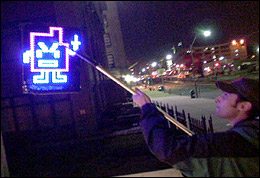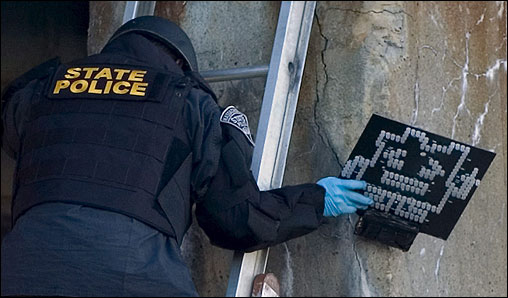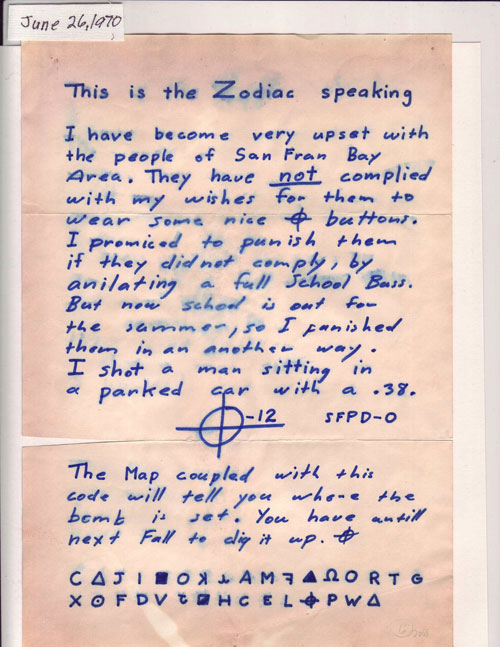
January 31, 2007
Megastores March Up Avenue, and Paris Takes to Barricades
 The biggest Adidas store in the world is on the Champs-Élysées.
The biggest Adidas store in the world is on the Champs-Élysées.
By
ELAINE SCIOLINOPARIS, Jan. 30 — There was a time when the Champs-Élysées stood for grand living, high style and serendipity. With the Arc de Triomphe on one end and the Tuileries Gardens on the other, you could discover an underground jazz band at midnight and down oysters and Champagne at dawn.
But the road where de Gaulle celebrated France’s liberation from the Nazis, the one known as “the most beautiful avenue on earth,” has, like Times Square and Oxford Street in London, turned into a commercialized money trap.
Most of the music clubs are gone. Movie theaters are closing. Sometimes, all that seems to be left on the 1.2-mile stretch are the global chain stores that can afford the rent.
And so, in a truly French moment, the Paris city government has begun to push back, proclaiming a crisis of confidence and promising a plan aimed at stopping the “banalization” of the Champs-Élysées. The question is whether it is too late.
The first step was a decision last month to ban the Swedish clothing giant H&M from opening a megastore on the avenue.
The decision is intended to slow the invasion of retail clothing stores and to preserve what is left of the diverse character of the most visited site in France, after the Eiffel Tower.
“We were losing our sense of balance,” said François Lebel, a deputy mayor who administers the part of the city that includes the Champs-Élysées. “Drastic action was needed. We don’t have anything against H&M. It just happens to be the first victim.”
In a sense, the avenue is a victim of its own success. With rents as high as $1.2 million a year for 1,000 square feet of space, the Champs-Élysées is the most expensive strip of real estate in Europe and the third most expensive in the world, after Fifth Avenue in New York and Causeway Bay in Hong Kong, making it impossible for most small businesses to even consider setting up shop there.
Multinationals have no such problem. Adidas opened its largest store in the world on the Champs-Élysées last fall. Gap, Benetton, Naf Naf, the Disney Store, Nike, Zara, a Virgin Megastore and Sephora occupy major spaces. Car manufacturers including Toyota, Renault and Peugeot have huge showrooms that display flashy prototypes and serve largely as walk-in advertisements. Low-end fast-food chain restaurants like McDonald’s and Quick do high-volume business.
And things seem only to be getting more expensive. The opening of luxury showpieces like Cartier in 2003, Louis Vuitton’s five-story flagship store in 2005 and the Fouquet’s Barrière hotel last year (the least expensive room is nearly $900 a night) have given the avenue new glitter.
Round-the-clock saturation of the street by teams of uniformed and plainclothes police officers — in buses and cars, on in-line skates and foot — has made it safer for its up to 500,000 visitors a day. Armies of street cleaners compensate for the scarcity of garbage bins, a grim reminder of the terrorist bombings on the avenue two decades ago.
Only seven movie theaters are left, however, half the number of a dozen years ago. The UGC Triomphe has announced that it will close in the next few months unless its landlord backs down from the rent increase it has demanded.
Jean-Jacques Schpoliansky, the owner of the independent Le Balzac movie theater just off the Champs-Élysées, greets customers seven days a week to give his business a personal touch.
His rent is 15 times what it was in 1973. But the three-screen theater shows “artistic” movies, so the city gives it an annual subsidy of almost $39,000 to help it stay in business. He says he still doesn’t break even.
“My grandfather founded the Balzac in 1935,” Mr. Schpoliansky said. “This place, the human contact with my customers — this is my life.”
Many other merchants lament that the move to save the avenue has come too late. “High-class Parisians don’t want to come to the Champs-Élysées,” said Serge Ghnassia, owner of the fur shop Milady, which opened on the Champs-Élysées in 1933. “It’s not prestigious; it’s not pleasant. The people who come are very common, very ordinary, very cheap. They come for a kebab sandwich and a five-euro T-shirt.”
He said he kept the store largely for sentimental reasons, as a sort of shop window to advertise his more upscale stores on the Rue du Faubourg St.-Honoré and in the ski resort of Courchevel.
Underlying some of that resentment is that groups of young people descend on the Champs-Élysées from the working-class immigrant suburbs on weekend nights. The police keep a close watch on them, monitoring their moves.
But some old-timers praise the avenue as a sort of democratic — and free — tourist destination for the underprivileged. “The kids coming from the suburbs are coming from the suburbs to look, to see, to escape the places where they live,” Mr. Schpoliansky said. “We are a multiethnic country, and that reality is reflected on our street.”
The Champs-Élysées was conceived in 1667 as a grand approach to the royal palace at the Tuileries in what were then fields and swampland on the outskirts of Paris. In the 19th century, it was planted with elms, renamed after the Elysian Fields of Greek mythology and lined with hotels, cafes and luxurious private residences.
But the divide between the landmark avenue’s mythic image and its gritty commercialism has troubled Parisians for much of the last century.
The prosperity of the 1960s in France attracted airline companies, car dealerships, fast-food restaurants, panhandlers, streetwalkers and badly parked cars. Rents plummeted and many commercial spaces stayed empty.
In 1990, Jacques Chirac, who was then the mayor of Paris, began a $45 million renovation project that broadened sidewalks, planted more trees, eliminated parking lanes and added elegant streetlamps and bus stops.
Some of the older enterprises use creative ways to stay in business. The 24-hour restaurant L’Alsace is on the ground floor of the Maison de l’Alsace, a tourism and promotion bureau financed by the Alsace regional government.
Fouquet’s, one of the avenue’s few remaining belle époque restaurants, resisted a nasty takeover bid years ago and has been officially designated by the city of Paris as a “place of memory” to preserve its position on the avenue.
Louis Vuitton is so popular that its customers (most of them tourists) often have to line up outside for entry.
All that activity has made the unanimous decision by the city’s commerce committee to block admission to H&M particularly stunning.
H&M, which already has nine stores in Paris, had hired Jean Nouvel, a leading French architect, to design the 37,000-square-foot space in what once housed offices of Club Med.
The company has suggested that it will appeal.
But the ruling followed a study for the city of Paris last November that found that 39 percent of the avenue’s street-front retail space was filled with clothing stores.
“The avenue progressively is losing its exceptional and symbolic character, thus its attractiveness,” the study warned, predicting that if the trend continued, the Champs-Élysées would become as tacky as Oxford Street.
That gloomy assessment is not shared by Christophe Pinguet, the director of the Shortcut public relations agency and one of the two dozen remaining residents of the Champs-Élysées. From the terrace of his top-floor apartment, Mr. Pinguet looks out on the Eiffel Tower, the Place de la Concorde and the Arc de Triomphe.
“I know shops nobody knows,” he said. “I know the butcher who delivers meat to Jacques Chirac. I know the police who dress like spies. Sure, the Champs-Élysées can be cheap. But it’s not a museum. The battle shouldn’t be to keep H&M out. It should be to make sure it’s fabulous.”
 |  |
The clothing chain H&M was not permitted to open a store in this building on the Champs-Élysées. |
|
 We've been having life-changing ebook experiences of one form or another promised to us for what seems like forever, but it really could be just around the corner this time, honest -- though the whole life-changing thing is still debatable at this point. It turns out Google is pressing forward with its Google Book Search service, and planning to roll out full-on ebook sales "sooner rather than later," with downloadable books available to computer screens and mobile devices.
We've been having life-changing ebook experiences of one form or another promised to us for what seems like forever, but it really could be just around the corner this time, honest -- though the whole life-changing thing is still debatable at this point. It turns out Google is pressing forward with its Google Book Search service, and planning to roll out full-on ebook sales "sooner rather than later," with downloadable books available to computer screens and mobile devices.


























